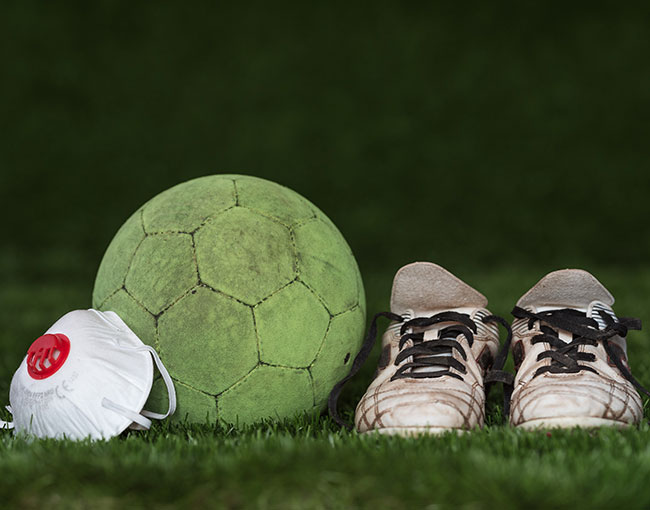As is so often the case, as we confront the coronavirus pandemic, the sports world is a microcosm of society at large. Like so much of business and industry, sports at all levels have come to a screeching halt. The NBA, NHL and MLB have all gone on hiatus. The NFL has curtailed normal preparation for the draft, and the NCAA cancelled its most popular and lucrative showcase, the Final Four. The Masters has been rescheduled for the fall, as has the Kentucky Derby. Several countries said they would not send teams to the 2020 Olympics and the IOC finally decided to delay the Olympic Games until 2021.
Television networks are clamoring for programming as there are no live events, which consequently has had a huge effect on advertising revenue. Furthermore, the ramifications go beyond the players and leagues. Stadium workers, hotel employees, vendors and team employees have all been affected by the suspension of the sports industry.
We are, therefore, forced to look at many issues, although not unique to sports, that are present as the sports world deals with the pandemic. For instance:
- If games aren’t played, what is the status of the relationship between the team and the landlord of its venue? Do force majeure clauses excuse performance? Does the fact that seasons and games were cancelled before the declaration of “national emergency” have any bearing on this determination?
- With games being cancelled, part-time stadium workers usually paid by the hour are not going to be paid. Venues are terminating or furloughing employees. Is there eligibility for any relief under the Payroll Protection Program or other programs?
- Who should get tested for coronavirus? Several NBA teams have gotten their players tested. With the obvious shortage of tests, how did the players jump to the front of the line?
- Many team customers amidst this pandemic and the unknown financial picture are struggling with managing additional non-essential financial commitments. Will teams work with fans to delay payments for season tickets? Will teams quickly process ticket refunds for games not played?
- How will television networks deal with advertisers as live sporting events are more valuable inventory than almost anything else. Will there be games played without fans?
- Several major sports venues are in the middle of construction and crews are continuing to work. If the predictions of increased infections are correct, will progress continue and if not, what does that mean to those organizations and their plans for opening up new stadiums or arenas? Will venues have to be reconfigured to accommodate “social distancing”?
- What happens when we are finally able to return to some sense of normalcy? How do we make up games? How do we compensate for lost revenue and lost income? What happens to the displaced workers?
- The NCAA just decided to grant spring semester athletes an additional year of eligibility. What ripple effects will that have on programs and other athletes? What about incoming freshman athletes? Should no accommodation be made for those athletes who had their seasons cut short by the pandemic?
I wish we knew the answers to these questions or could find a reasonable solution to get us to the finish line of COVID-19. The pandemic landscape changes every day. New issues come up and there are new solutions discussed. Like other industries, the sports world has struggled with many of these questions.
Several teams and venues backtracked after making widely criticized initial decisions not to pay employees. Several teams and players have agreed to fund payment to those workers, once again proving the impact that these visible teams and athletes can make. Some coaches have recorded PSA messages about recommendations to slow to spread the coronavirus. The NCAA overruled Clemson and allowed its star quarterback, Trevor Lawrence, and his girlfriend to use Lawrence’s name, image and likeness to assist those impacted by the COVID-19 pandemic.
Nations, governing bodies, leagues, teams, and athletes are all wrestling with these issues. Answers are unknown and will continue to evolve. The best advice is to listen to the health professionals as we ride out this COVID-19 storm together.
Bob Wallace is the chair of Thompson Coburn’s Sports Law Group.
Click here to subscribe to News & Insights from Thompson Coburn LLP related to our practices as well as the latest on COVID-19 issues.

